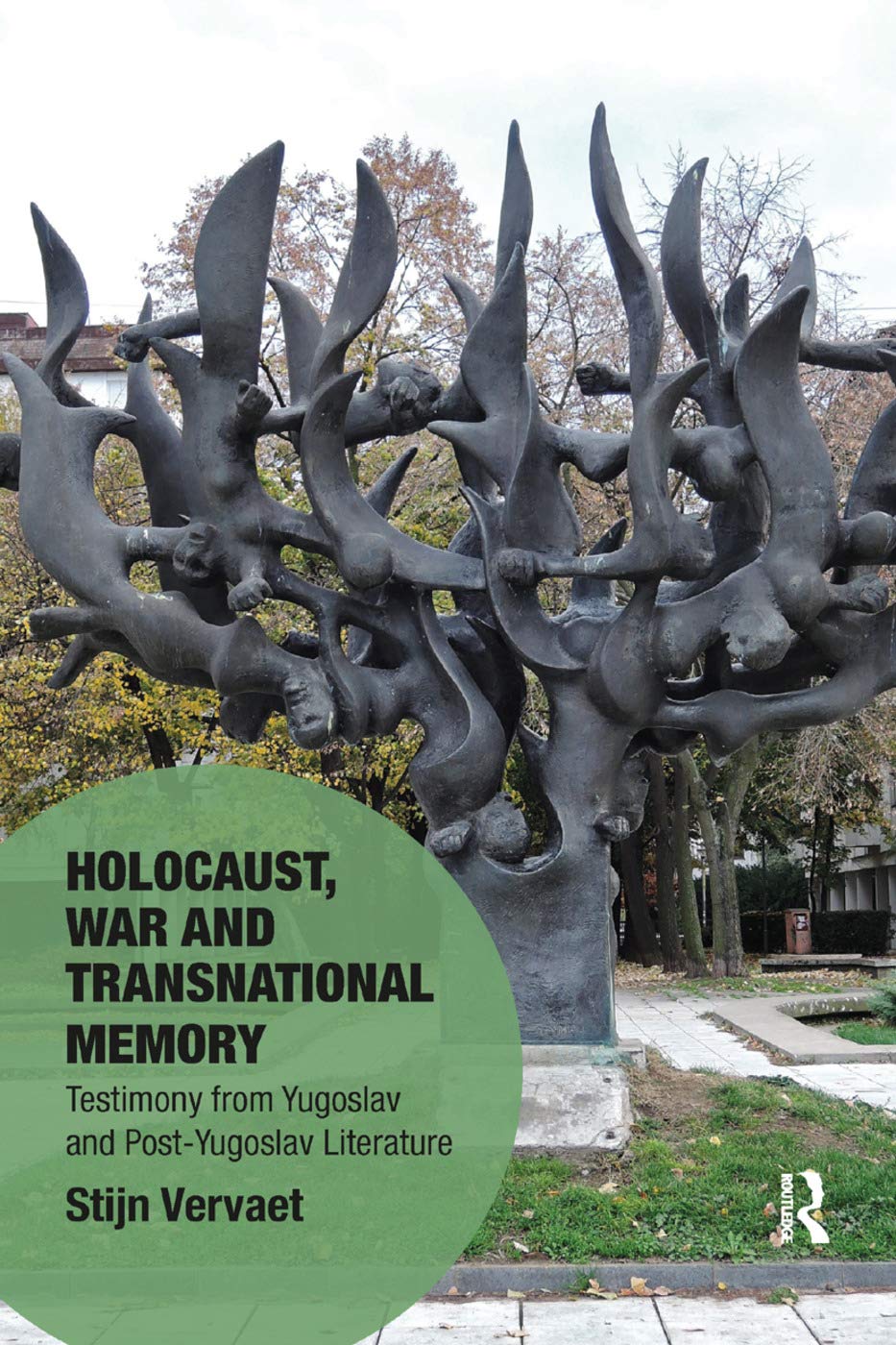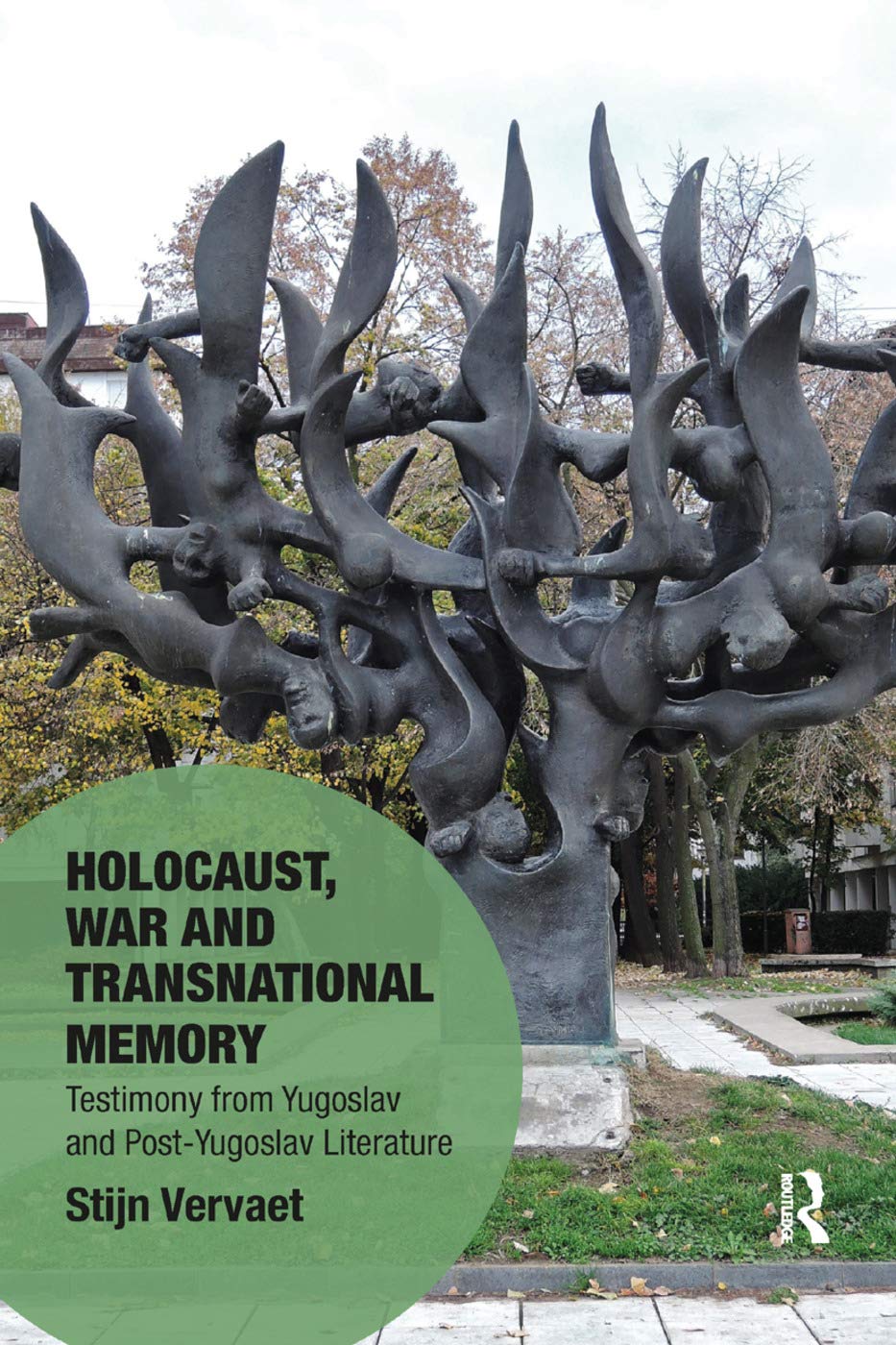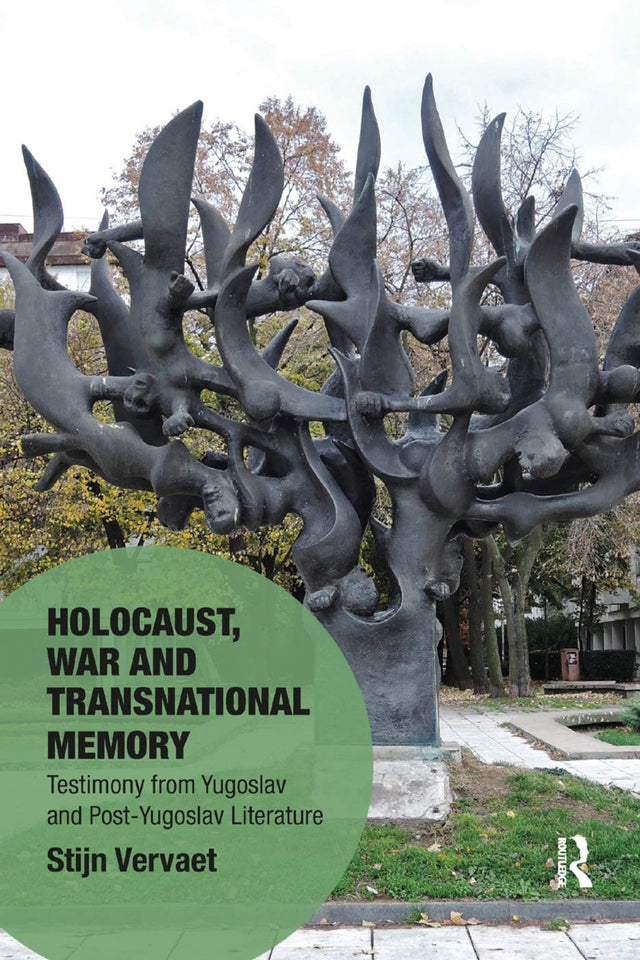Holocaust, War and Transnational Memory: Testimony from Yugoslav and Post-yugoslav Literature
Holocaust, War and Transnational Memory: Testimony from Yugoslav and Post-yugoslav Literature is backordered and will ship as soon as it is back in stock.
Couldn't load pickup availability
Genuine Products Guarantee
Genuine Products Guarantee
We guarantee 100% genuine products, and if proven otherwise, we will compensate you with 10 times the product's cost.
Delivery and Shipping
Delivery and Shipping
Products are generally ready for dispatch within 1 day and typically reach you in 3 to 5 days.
Book Details
-
Publisher: Routledge
-
Author: Vervaet, Stijn
-
Language: English
-
Edition: Illustrated
-
ISBN: 9780367332983
-
Pages: 196
-
Cover: Paperback
-
Dimensions: 9.6 x 6.6 x 1.0 inches
-
Format: Illustrated
About the Book
Eastern European Holocaust Fiction and the Memory of Extreme Violence by Stijn Vervaet offers a fresh and insightful exploration of how Eastern European Holocaust fiction contributes to contemporary debates surrounding transnational and transgenerational memory. Focusing on Yugoslav and post-Yugoslav literary narratives, this book examines how Holocaust memory intersects with stories of other forms of extreme violence, including the suffering of the non-Jewish South-Slav population during WWII, the victims of Stalinist terror, and the survivors of ethnic cleansing in the Yugoslav wars of the 1990s.
Vervaet delves into the transformation of Holocaust memory throughout the socialist Yugoslav and post-Yugoslav eras, analyzing literary texts by Yugoslav and post-Yugoslav writers. The book situates these works in their historical and discursive contexts, paying particular attention to their reception at the time. It explores how Holocaust memory, across generational lines—from survivors to second- and third-generation writers—becomes a motif for understanding extreme violence both locally and globally.
This volume offers comparative studies of several authors, providing readings of both lesser-known and internationally acclaimed writers such as Danilo Kiš and David Albahari. By examining the works of Jewish and non-Jewish authors across three generations, the book sheds light on the ethical and aesthetic dimensions of the transgenerational transmission of Holocaust memory within the Yugoslav context.
Ideal for students and scholars of Holocaust studies, cultural memory studies, literary studies, and Balkan studies, this book is an essential resource for anyone interested in the intersection of memory, violence, and literature.





